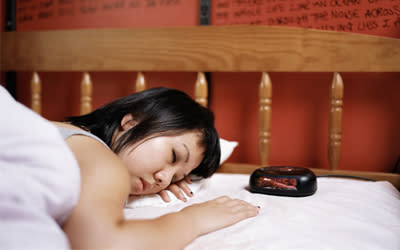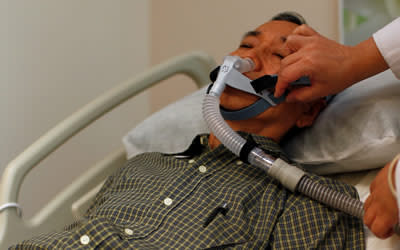Get more sleep, Singapore

When you surf the web into the wee hours of the night or constantly burn the midnight oil to rush your work, you could be putting yourself at a greater risk of developing medical conditions such as heart disease or diabetes.
This is because prolonged sleep deprivation, which means less than four or five hours of sleep each night for years, puts the body in a stressful condition, explained Dr Lim Li Ling, Medical Director of the Singapore Neurology & Sleep and president of the Singapore Sleep Society.
Noting Singapore's fast-paced environment, Dr Lim said, "The biggest problem in sleep in Singapore is one of voluntary sleep deprivation."
"Most people like to sleep but they don't feel it's as important as working on a project or being on the Internet," she said. "My sense is that over all, awareness (on the importance of good sleep) is not very high."
The recently published Philips Index for Health and Well-being report, a research conducted across 23 countries including Singapore, found that 35 per cent of people feel they are not getting enough sleep, impacting their physical and mental health.
For World Sleep Day on Friday, the Singapore Sleep Society and Philips, in partnership with the World Association of Sleep Medicine, are separately running campaigns to encourage people to sleep more and raise awareness on sleep disorders.
Common sleep disorders in Singapore are insomnia and obstructive sleep apnea (OSA), where a person stops breathing multiple times while asleep because the upper airways are blocked and it is hard for air to enter the lungs.
Doctors estimate 10 to 30 per cent of the population here have insomnia, while up to 25 per cent of the population here have OSA. Global studies show 4 per cent of middle aged men and 2 per cent of women have OSA.
The figures vary as there are no recent local studies on sleep disorders because of funding and manpower issues, doctors said.
But while the numbers differ, doctors do agree that more people could be suffering from OSA as obesity rates rise. Weight has a direct effect on OSA as the additional fat around the neck could make the airway narrower and obstruct breathing.
Signs of OSA include snoring, waking up in the middle of the night breathless and feeling tired in the day.
Dr Lee Yeow Hian, a consultant in respiratory medicine in Tan Tock Seng Hospital said the "vast majority" of people with OSA go undiagnosed as they are either not aware of the condition, or they are not aware of their symptoms are they are asleep.
Yet in the long term, people with OSA are at a higher risk of getting cardiovascular disease, high blood pressure, stroke, heart attack and diabetes.
Said Dr Ong Thun How, the director of the Singapore General Hospital's sleep disorders unit, people with OSA have a 47 per cent more chance of getting and dying from a heart attack.
She said, OSA can be treated via surgery for some or through the use of a mask that blows air into the throat and lungs to prevent the airway from being blocked.
Patients suffering from insomnia should also be screened for underlying causes such as medical disorders or psychiatric conditions such as depression and anxiety, she said.


